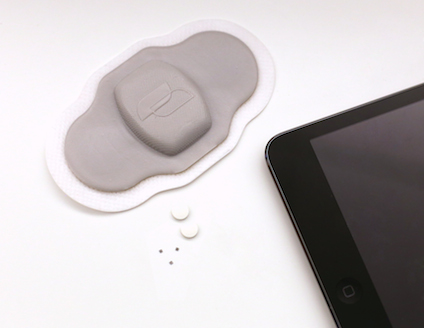The United States has accepted the "chip medicine" application for the digital medical era has arrived?
Release date: 2015-09-14 Swallow a small piece of medicine, the tiny sensor wrapped in the tablet enters the patient, collects various indicators from the inside of the body, and cooperates with the extracorporeal equipment to assist the doctor and the nursing staff to track the patient's medication. The application for new drug listings for "medicine" technology has fallen to the US Food and Drug Administration (FDA) desk. $6.5 billion investment in digital healthcare Proteus Digital Health (PDH) and Japan's Otsuka Pharmaceuticals have been collaborating to develop a "chip medicine" technology in 2012, which contains an absorbable micro-sensor. After the patient is taken by the patient, the electrode of the micro-sensor is utilized. The gastric juice provides power to collect real-time physiological information such as heart rate, body angle, and activity in the stomach, communicates with the patch sensing device outside the patient, and transmits various information in the body to be displayed on a terminal device such as a smart phone. PDH was founded in 2001 in California. In 2010, the company's technology was certified in the European Union, allowing the sale of a health monitoring system based on ingestible sensors called Raisin. In 2012, PDH launched the product Helius in the UK. With the arrival of a $172 million G-round financing in 2014, the company has already invested more than $300 million and is considered one of the most promising medical technology companies. Digital Health is now one of the most attractive sectors for investors in the field of innovation. According to the Startup Health website, more than 7,500 startups around the world are exploring various digital healthcare businesses, and the investment reached 65 last year. In view of the fact that it was only 2.9 billion U.S. dollars in 2013, it was close to this level in the first half of this year, reaching 2.8 billion U.S. dollars. The chip was implanted in aripiprazole (ABILIFY), a drug used by Otsuka Pharmaceutical for the treatment of schizophrenia. It is understood that the biggest role of the chip is to help doctors and nursing staff to track the actual medication of patients, and collect various physiological feedback information to help patients adhere to the prescription of doctors, and reduce the waste of medical resources caused by improper medication. It is particularly effective in the treatment of mental illness and psychological disorders. Do not take the medicine on time? Chip knows PDH said that about half of mentally ill patients in developed countries do not take medication according to prescriptions, and some patients who need long-term medications stop taking drugs without authorization, leading to recurrence of old diseases. In the United States alone, the unnecessary waste of medical systems caused by patients not taking prescriptions is as high as $300 billion. Therefore, this medical monitoring technology is aimed at the caregivers who are responsible for caring for patients with chronic diseases, helping them to master the progress of treatment, and urging patients to take medication according to prescriptions, so as to avoid unnecessary waste of patients due to relapse of old medications. . “All the time, patients have prescribed medicine from doctors, doctors take them home, but patients often don’t follow the doctor’s advice,†said PDH CEO Andrew Thompson, who is able to measure multiple physiological indicators. It can monitor the health of the patient in real time and help the patient analyze whether the treatment works. “This is a new breakthrough in the policy layer that combines medical innovation and software innovation.†Although the FDA cannot guarantee that the drug will eventually be approved for marketing, Thompson believes that the FDA's acceptance of the application is already an important milestone in the digital health field. Once approved, the doctor will be able to prescribe a chip on the patient, monitor the patient's medication, and improve the efficiency of the treatment. In the past few years, PDH and the FDA have been working closely on the development of chip-related policy mechanisms. The chip technology itself, the FDA has conducted dozens of clinical studies on 800 patents involved. Some technology companies, including Google and Apple, have shown great interest in the field of smart healthcare. However, regulators around the world must have sufficient cutting-edge expertise to make the safety and effectiveness of this new medical product. Evaluation, this process has become a bottleneck restricting the development of this industry. Source: Yicai.com
Press Lock Wire Seals are combined by a piece of wire and a plastic locking body. The locking body has some anchors to provide locking mechanism. So they are also called anchor seals. The anchor seal body is always made with polycarbonate material.
The anchor seals are originally designed as a replacement for lead seals. The application of the anchor seals include: Hospital Equipment, EMS Equipment, ATM Cassettes, Zipper Bags, Coin Boxes, Storage Units, Fibre Drums etc.
Press Lock Wire Seals,Press Lock Meter Seals,Press Lock Wire Seal,Meter Seals In Press Type Wenzhou Haoshi Light Industrial Products Co., LTD , https://www.economicseals.com The medicine contains a micro-sensor that can be absorbed. After the tablet is taken by the patient, the electrode of the micro-sensor uses the gastric juice to provide power, and collects real-time physiological information such as heart rate, body angle and activity in the stomach, and the patch sensing outside the patient. The device communicates to transmit various information in the body and display it on a terminal device such as a smart phone.


